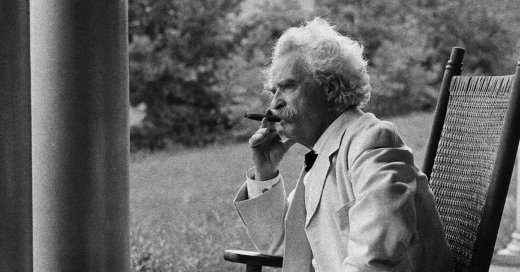Traditional Version of the Lord’s Prayer (King James Version)
Our
Father which art in heaven,
Hallowed
be thy name.
Thy
kingdom come, Thy will be done in earth, as it is in heaven.
Give
us this day our daily bread.
And
forgive us our debts, as we forgive our debtors.
And lead us not into temptation,
but deliver us from evil
Franklin’s New Version of the Lord's Prayer
Heavenly
Father,
May
all revere thee,
And become thy dutiful Children and faithful Subjects.
May thy Laws be obeyed on Earth as perfectly as they are in Heaven.
Provide for us this day as thou hast hitherto daily done.
Forgive us our trespasses, and enable us likewise to forgive those that offend us.
Forgive us our trespasses, and enable us likewise to forgive those that offend us.
Keep
us out of Temptation, and deliver us from Evil.
 |
| Franklin Portrait by Joseph-Siffred Duplessis, c. 1785 |
January 1, 1768
Reasons for the Change
of Expression
Old Version: Our Father which art in Heaven
New Version: Heavenly Father, is more concise, equally
expressive, and better modern English.
Old Version: Hallowed be thy Name. This
seems to relate to an Observance among the Jews not to pronounce the proper or
peculiar Name of God, they deeming it a Profanation so to do. We have in our
Language no proper Name for
God; the Word God being a common or general Name,
expressing all chief Objects of Worship, true or false. The Word hallowed is almost obsolete: People now
have but an imperfect Conception of the Meaning of the Petition. It is
therefore proposed to change the Expression into New. May all revere thee.
Old Version: Thy Kingdom come. This Petition seems suited to the
then Condition of the Jewish Nation. Originally their State was a Theocracy:
God was their King. Dissatisfied with that kind of Government, they desired a
visible earthly King in the manner of the Nations round them. They had such
King's accordingly; but their Happiness was not increas'd by the Change, and
they had reason to wish and pray for a Return of the Theocracy, or Government
of God. Christians in these Times have other Ideas when they speak of the
Kingdom of God, such as are perhaps more adequately express'd by New Version: And become thy dutiful Children and
faithful Subjects.
Old Version: Thy Will be done on Earth as it is
in Heaven
More explicitly, New
Version: May thy Laws be
obeyed on Earth as perfectly as they are in Heaven.
Old Version: Give us this Day our daily Bread. Give us what is ours, seems to put
in a Claim of Right, and to contain too little of the grateful Acknowledgment
and Sense of Dependance that becomes Creatures who live on the daily Bounty of
their Creator. Therefore it is changed to New Version: Provide for us this Day, as thou
hast hitherto daily done.
Old Version: Forgive us our Debts as we forgive
our Debtors - Matthew
Forgive us our Sins, for
we also forgive every one that is indebted to us - Luke.
Offerings were due to God on many Occasions by the Jewish
Law, which when People could not pay, or had forgotten as Debtors are apt to
do, it was proper to pray that those Debts might be forgiven. Our Liturgy uses
neither the ‘Debtors’ of Matthew, nor the ‘indebted’ of
Luke, but instead of them speaks of those
that trespass against us. Perhaps the Considering it as a Christian Duty to
forgive Debtors, was by the Compilers thought an inconvenient Idea in a trading
Nation. There seems however something presumptious in this Mode of Expression,
which has the Air of proposing ourselves as an Example of Goodness fit for God
to imitate. We hope you will
at least be as good as we are; you
see we forgive one another, and therefore we pray that you would forgive us.
Some have considered it in another Sense, Forgive
us as we forgive others; i.e. If we do not forgive others
we pray that thou wouldst not forgive us. But this being a kind of conditional Imprecation against ourselves, seems improper
in such a Prayer; and therefore it may be better to say humbly and modestly
New Version: Forgive us our Trespasses, and
enable us likewise to forgive those that offend us. This instead of assuming that we
have already in and of ourselves the Grace of Forgiveness, acknowledges our
Dependance on God, the Fountain of Mercy, for any Share we may have of it,
praying that he would communicate of it to us.
Old Version: And lead us not into Temptation. The Jews had a Notion, that God
sometimes tempted, or directed or permitted the Tempting of People. Thus it was
said he tempted Pharaoh; directed Satan to tempt Job; and a false Prophet to
tempt Ahab, &c. Under this Persuasion it was natural for them to pray that
he would not put them to such severe Trials. We now suppose that Temptation, so
far as it is supernatural, comes from the Devil only; and this Petition
continued, conveys a Suspicion which in our present Conceptions seems unworthy
of God, Therefore might be altered to New Version: Keep us out of Temptation.


